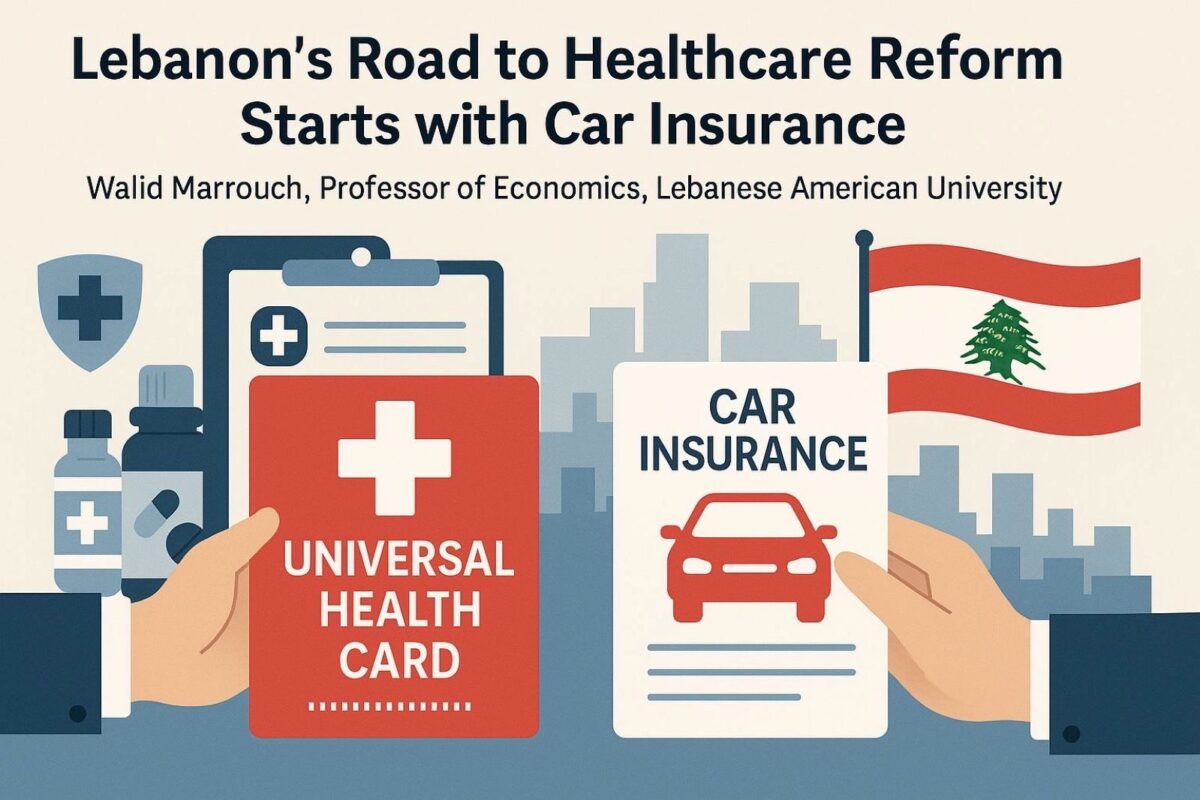
Since the 2019 economic collapse, the fear of a medical emergency has haunted nearly every household in Lebanon. The astronomical cost of healthcare has become the single greatest financial burden for poor and middle-income families. As reports from institutions like the World Bank confirm, out-of-pocket health expenditures have skyrocketed, pushing many into destitution. While grand, ideological solutions remain elusive, a practical, proven model for universal coverage is hiding in plain sight: Lebanon’s mandatory car insurance system.
Every driver in Lebanon is legally required to purchase third-party liability insurance. This system, mandated by the state but delivered by a competitive private market, is a quiet success story. It is universal for all drivers, and because of its wide coverage, it benefits from economies of scale, keeping premiums relatively low. The government acts as a referee, setting the rules of the game, not as a player trying to manage the entire enterprise. This is the blueprint we must adapt for our most critical sector.
Imagine a similar system for basic health coverage. The government would mandate that every resident in Lebanon—citizen and foreigner alike—must possess a basic health insurance plan covering the most crippling expenses: emergency room visits and hospitalization. This “Universal Health Card” would be sold by Lebanon’s numerous private insurance companies, leveraging our existing competitive insurance market to prevent the creation of a new monopoly while avoiding the inefficiencies of a state-run behemoth.
An independent panel of experts, appointed by the government, could suggest a reasonable annual premium, ensuring affordability. The sheer volume of participants—the entire population—would create immense economies of scale, making this basic plan far cheaper than any currently on the market. Private hospitals, already accustomed to dealing with various insurers, would accept the plan. This isn’t a theoretical afterthought; it’s using the market structure we already have. For employers, it offers a standardized, affordable option. For the most vulnerable, the government can finally “put its money where its mouth is,” by subsidizing or directly purchasing these plans, providing targeted and effective social protection.
This public-private initiative would immediately lower the cost of living, pool national risk, and ensure that a medical emergency doesn’t automatically mean financial ruin. It is an innovative, out-of-the-box solution tailored for a country with limited resources but a vibrant private sector where most of the economy is, including the informal economy. By acting as a smart referee, the government can harness the power of competition and scale to provide an essential safety net for all. It’s time to stop debating ideologies about social protection or the lack of and implement instead a pragmatic reform that works for Lebanon and its inhabitants.
Walid Marrouch, Professor of Economics, Lebanese American University
The views in this story reflect those of the author alone and do not necessarily reflect the beliefs of NOW.







